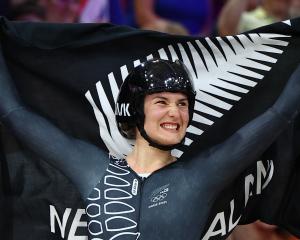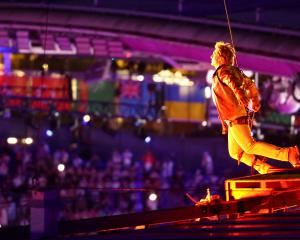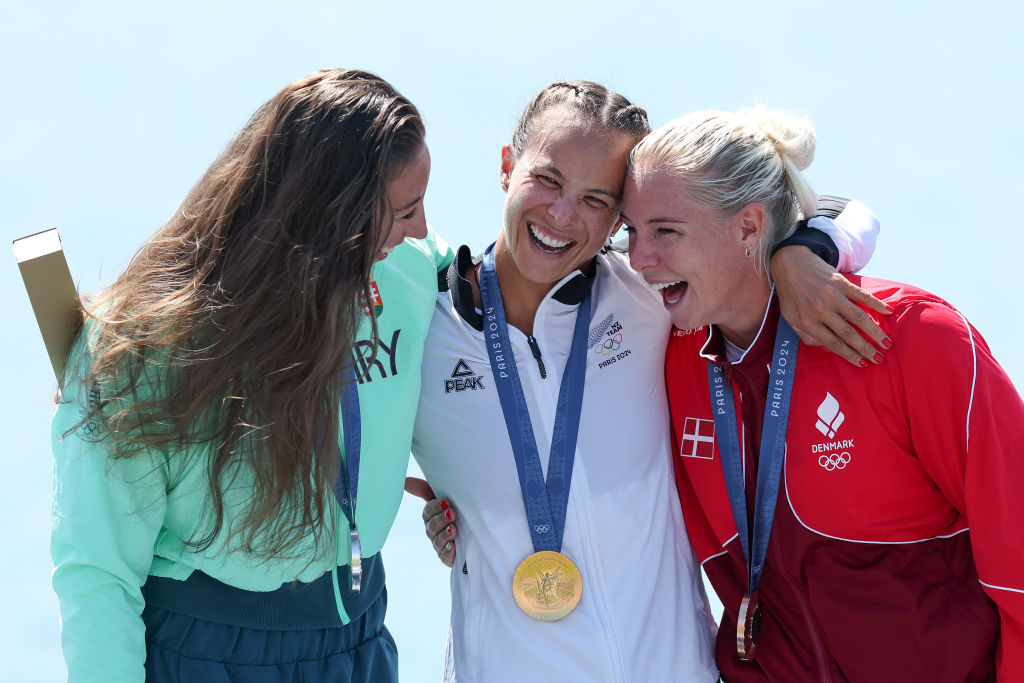
Dame Lisa Carrington stands on the embankment of the Vaires-sur-Marne nautical stadium in Paris talking media through the race of her life as if it were just another training run.
An hour earlier she had lit up the glass-like lake in a thrilling K1 500m final, overcoming a spirited fight from Hungarian Tamara Csipes, to complete a golden trifecta at the Paris Olympics.
The win, which followed gold in the K2 and K4 events earlier in the week, brought her career tally to an astounding eight gold medals - a feat likely never to be repeated in this country.
Saturday's final, more than any other of her career, stretched her "physically, mentally, emotionally".
The showdown had been hyped for months. A battle for the ages between Carrington and her Kiwi rival, Aimee Fisher, who had beaten her at two World Cup meets in the lead-up - the first of which occurred in a world's best time.
Also lurking was Csipes, who reportedly eclipsed Fisher's record in a domestic competition in June, though it was not officially ratified.
This was all background noise to Carrington. Sitting on the startline of the final, 500 metres away from cementing her place among the world's greatest Olympians, Carrington's focus remained firmly fixed on the details.
"The last four months have been really intense preparing for this moment. Obviously, so has the last 15 years," she said.
"On the startline I had to come back to the paddling, I know what the job is, I know how I want to race it, and not be taken out of that mindset.
"It's boring as anything, but I just had to come back to some good technical cues and lean on my training."
Carrington's relentless brilliance has been built on the boring details. Her eight gold medals are each dazzling totems to the mundane - the extraordinary sum total of ordinary actions repeated over and over again.
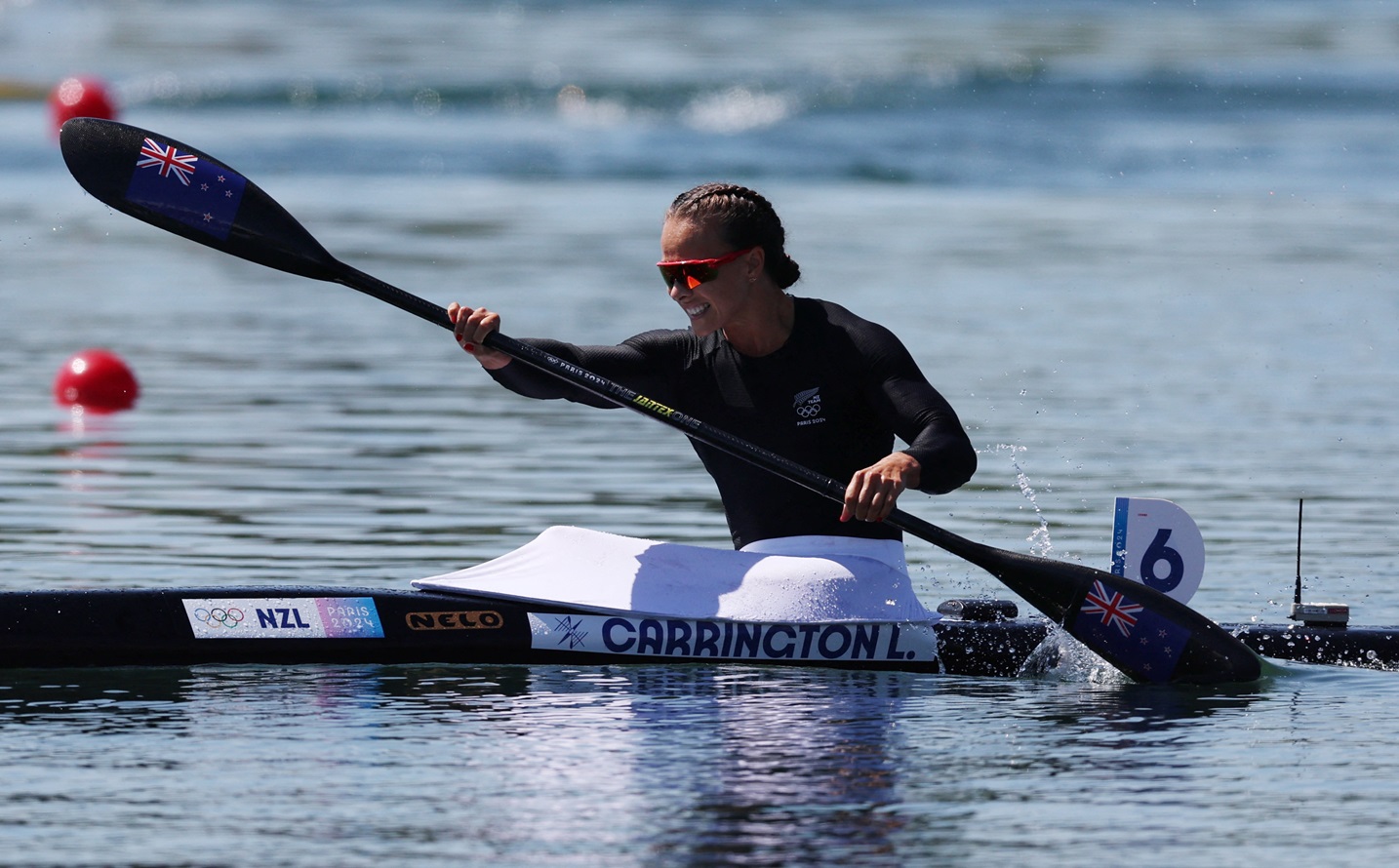
Rival makes Carrington dig deep
The last few months have tested Carrington's resolve and discipline like never before. For a long time the Kiwi great appeared untouchable in the single-seat events.
Fisher changed that, pulling off headline-grabbing wins at home and abroad.
It forced Carrington, in the twilight of her career, to dig deep and find yet more improvement when she had already proven herself to be the 'GOAT in the boat'.
"It's really interesting, you probably don't realise how much you feel your identity is wrapped in winning, and it's not until you don't win that you realise what I was leaning on," Carrington said of the two World Cup losses to Fisher earlier this year.
"It really made me realise that I had to really fight today to perform. This whole week, I had to be super diligent, and I guess it just taught me that I had to pay attention to the detail, and turning up and literally just being able to handle the pressure is a tough thing. So I worked really hard on trying to figure that one out."
Saturday's long-awaited showdown between Carrington and Fisher failed to produce the anticipated fireworks as hopes of an historic New Zealand one-two disappeared within the first 100m of the race, after Fisher found herself out of the fight following a sluggish start.
Instead it was Csipes who took the race to Carrington. The Hungarian led through the first 250m, before the Kiwi paddler, unfazed by the early challenge, calmly mowed Csipes down over the second half of the race.
Fisher eventually finished fourth behind Denmark's Emma Jorgensen - a devastating result for an athlete who had assigned a higher meaning to the Paris Olympics after withdrawing herself from selection contention for the Tokyo Games due to concerns over the safety of Canoe Racing NZ's high performance environment.
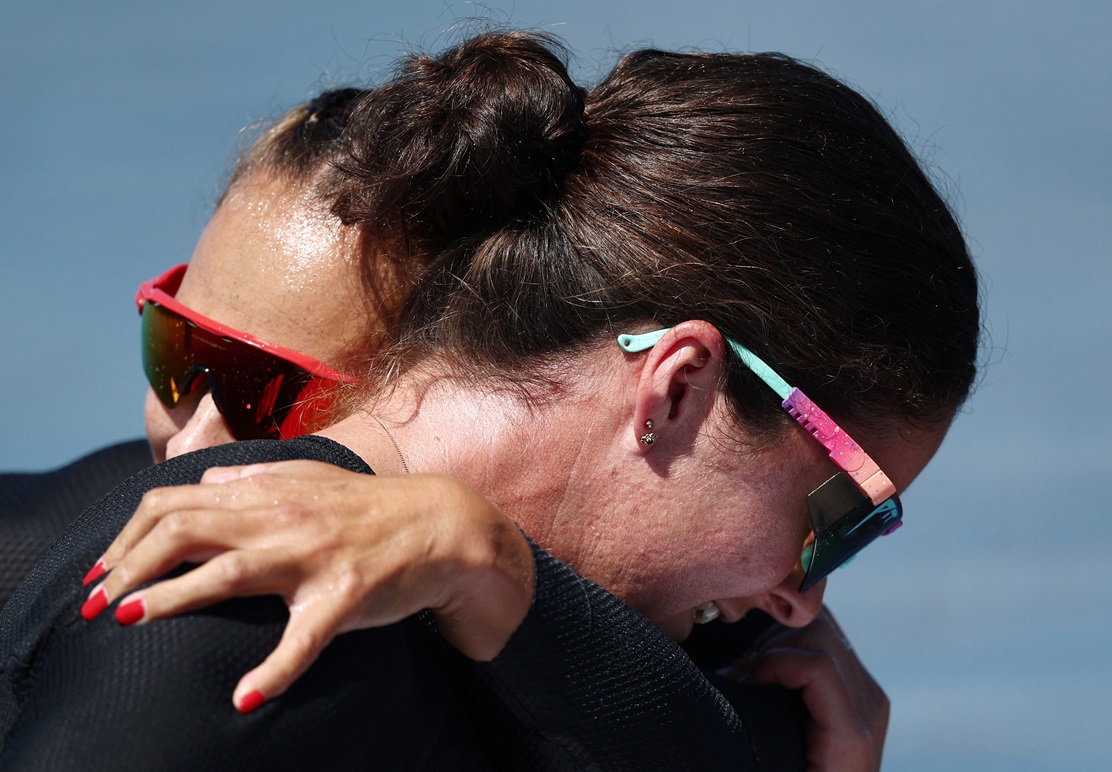
Carrington, meanwhile, was not overawed by the occasion, because she had practised and rehearsed all the tiny details. This week, as she juggled multiple finals across multiple events, the pressure became routine to her.
"It is about meeting the moment. Sometimes obviously the pressure of the Olympics gets to people, and knowing that all you need to do is figure out how to just turn up and do what you do in training and be yourself, that is the hardest part."
'Giving kudos' to Fisher
Soon after a bewildered Fisher crossed the finish line, struggling to contemplate how her story ended this way, Carrington paddled over to console her Kiwi rival.
"I feel for her absolutely, but I think I was just giving her a lot of kudos. The hard part is getting here," Carrington said of the moment out on the water.
The question now is, will Carrington be back here again?
When asked of her plans beyond these Games, Carrington, fresh from standing atop the Olympic medal podium, said "it's pretty enticing to continue after this one".
At other times she reflected on her career in past tense, imparting a sense of finality.
If Paris is to be her swansong, Saturday's K1 500m showdown will be her crowning glory. The perfect way for a perfect paddler to exit.







